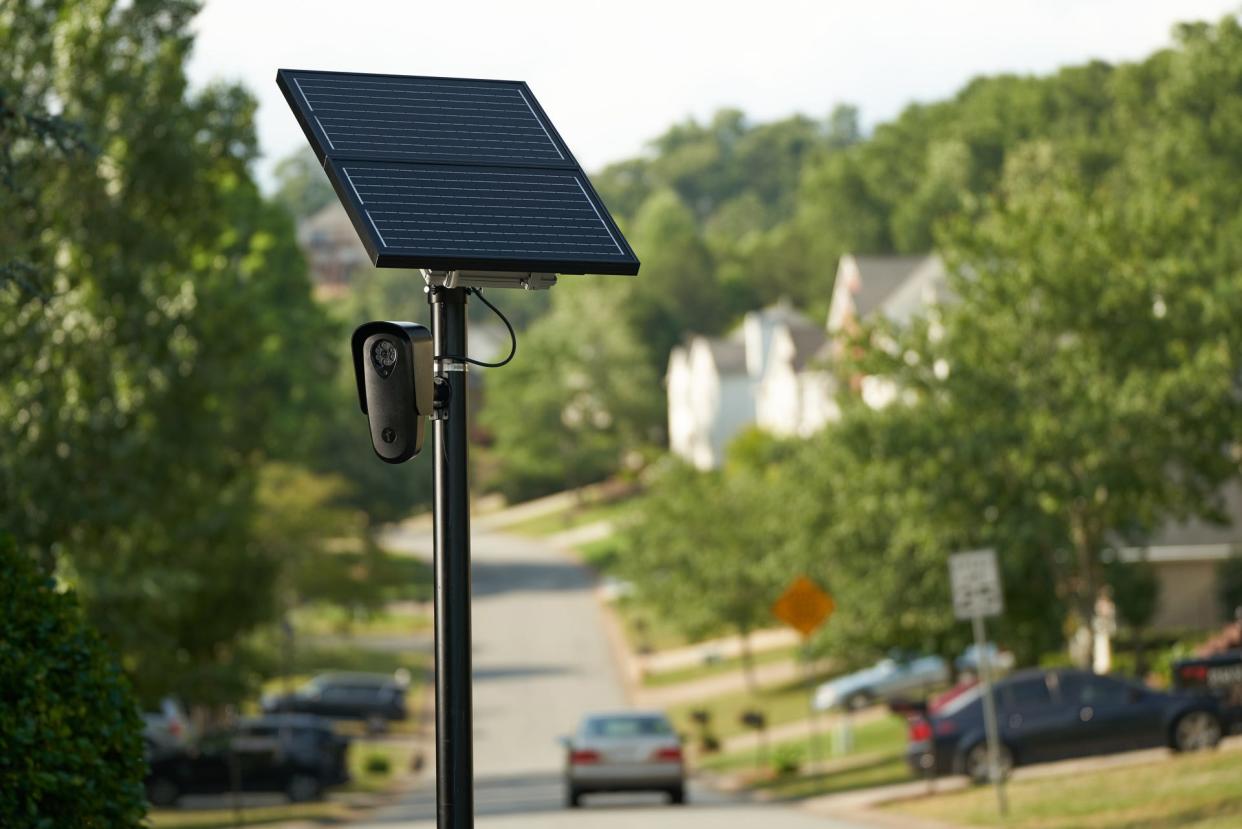License plate cameras spark concern, but gain approval from Lubbock County

A controversial law-enforcement tool got another green light from the Lubbock County Commissioners Court this week.
The court on Monday approved an agreement with the Texas Department of Transportation to install automated license plate recognition (ALPR) cameras, which capture an image of every vehicle passing by them. Law enforcement says will help fight crime, but others argue the cameras are unnecessary and invasive.
The multi-use agreement with TxDOT, which allows the county to install the cameras in state-owned right-of-way, passed 4-1 Monday with Commissioner Jason Corley dissenting.
The agreement passed Monday covers these specific rights-of-way: North I-27, exit 10; South I-27 and Woodrow Road; U.S. 84 and North CR 1540; TX 114 and Research Blvd., Iola Avenue, Slide Road, Quaker Avenue, Indiana Avenue, University Avenue, Avenue Q and West Loop 289; U.S. 84 and E. CR 7900; FM 40 and Niter Road; and U.S. 62/82 and Walnut Avenue.
Back in August, commissioners unanimously approved a contract to acquire 77 ALPR cameras from Flock Safety for use by Lubbock's Texas Anti-Gang Center (TAG) and the South Plains Auto Theft Task Force at more than 20 Lubbock intersections.
Read next: Lubbock County juvenile justice officials set to open new education complex
Phillip Partin, Lubbock TAG administrator, told commissioners during the Aug. 28 meeting the cameras will be used to help the law-enforcement partnerships solve different types of serious crimes in Lubbock County.
"They should be helpful in helping us locate stolen vehicles, wanted persons, narcotics investigations, homicides, robberies, aggravated assaults, but also Amber Alerts and Silver Alerts," Partin said at the time, noting the cameras would capture almost every car entering or exiting the city of Lubbock.
Partin added Monday that as part of the county's subscription, Flock Safety will store data collected from the cameras for 30 days. "We're allowed to query that information through our subscription for our investigations," he said.
One citizen rose to comment on the cameras during the Monday meeting, expressing concern the plate readers are authoritarian and unconstitutional.
"When I saw this agenda item, I'm thinking, 'Am I dealing with the Lubbock County Commissioners Court or the city of Moscow, Russia, where you have to show papers and your every movement is tracked?'" said Jim Baxa, a Lubbockite and local conservative political activist. "The Fourth Amendment says any kind of search — a camera is a type of a search — requires a warrant. So to just put cameras up everywhere and just tracking your citizens all the time to know what's going on, that's illegal. That's a constitutional violation."
Corley, who in August voted in favor of the contract to obtain the cameras, seemed to agree with Baxa Monday.
"We're giving Flock permission to surveil all those who travel on Lubbock County roads," Corley said. "To me, this feels like we are bordering very close on a police state. I understand things are done like this in other parts of the country; I don't want to see that in Lubbock County."
According to Partin, several area cities already use the cameras, including Midland, Amarillo and Wolfforth in Lubbock County.
Neal Burt, civil chief for the Lubbock County District Attorney's Office, told commissioners there's no concern the cameras will constitute unreasonable search or seizure under the Fourth Amendment.
"Forty years ago, almost exactly, the U.S. Supreme Court approved the use of this type of action as not violating the Fourth Amendment," Burt said.
The U.S. Supreme Court ruled in United States v. Knotts (1983) that "a person traveling in an automobile on public thoroughfares has no reasonable expectation of privacy in his movements from one place to another."
Commissioners argued the benefits of the investigative tool outweigh the risk.
"If this saves one child from a kidnapping — if my vehicle is stolen and there's a baby in there — by God, I want those cameras picking that up," Commissioner Terence Kovar said.
"I have nothing to hide," Commissioner Jordan Rackler added.
But Corley emphasized his concerns.
"The road to hell is paved with good intentions, and this is a large cobblestone," he said.
This article originally appeared on Lubbock Avalanche-Journal: License plate cameras spark concern, but gain approval from Lubbock County

